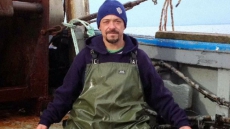The first clinical trial designed to see if two experimental Ebola vaccines actually work may begin in late January and two others are slated to start in February in West Africa, the World Health Organization said Friday.
Manufacturers of the two most advanced experimental vaccines need more time to determine how much vaccine each person might need for the product to work, said Dr. Marie-Paule Kieny, the WHO's point person for efforts to develop and deploy Ebola vaccines and drugs.
Kieny revealed the news at a press conference in Geneva called to report on a special vaccine summit with manufacturers and researchers that the WHO hosted on Thursday.
Kieny said the two leading manufacturers — GSK and a partnership between NewLink Genetics and Merck — are still analyzing data from small Phase 1 trials of the vaccines that are taking place in a number of sites in the United States, Canada, Europe and several African countries not currently fighting Ebola.
Phase 1 trials are designed to see if a product is safe to use and to determine what the dose for a drug or vaccine should be. They are followed by larger Phase 2 and 3 trials that are designed to show if an experimental product actually works.
It will take the manufacturers another two to four weeks to be able to determine an appropriate dose, Kieny said.
That is a delay on previous plans. It had been hoped the first and the largest of the trials would start in Liberia by mid-January.
The delays in getting the next stage of clinical trials off the ground is raising concerns that the trials may not come up with definitive answers about whether the vaccines work.
In order to show that a vaccine is efficacious, clinical trials vaccinate some people and leave others unprotected. If more cases are seen among those who didn't get the vaccine, it is signal that the serum is offering protection.
But with the rate of growth of new cases actually falling in many parts of the Ebola outbreak zone, there may not be enough transmission of the virus to be able to show that a vaccine works, some observers fear.
Kieny said the organizers of the Liberian trial are prepared to expand the number of people to be included in the trial if needed. Their statistical analysis suggests they should still be able to reach an answer, she said.
She noted, though, that at this point it seems most likely that a trial planned for Guinea might be the one that will give the earliest clue as to whether the vaccines work.
Two trials are planned for Guinea. One is an observational study, in which health-care workers will be vaccinated. They will be watched to see if new infections among health-care workers drop off after the vaccination.
Another — the one Kieny suggested might show signs of efficacy — involves a design called ring vaccination, in which people who are contacts of known cases will be vaccinated to try to prevent onward transmission.
People in some rings will be vaccinated immediately after a case is identified and others will be vaccinated after a delay. If there are fewer new cases among the contacts who were vaccinated quickly, it would suggest the vaccines are protective.
Kieny said organizers of that trial plan to vaccinate 4,500 contacts quickly and another 4,500 after a delay.
The NewLink-Merck vaccine was designed by scientists at Canada's National Microbiology Laboratory in Winnipeg, while the GSK product was designed by researchers at the U.S. National Institutes of Health.
Kieny said a third manufacturer, Johnson & Johnson, indicated it is devising plans to do an efficacy trial of another Ebola vaccine later in the year. The company's vaccine started Phase 1 testing this week in Britain.
Their vaccine requires two doses, a priming dose followed by a booster some weeks later. That is not an optimal strategy in an outbreak, because of the amount of time it would take to protect people.
But Kieny said there was discussion at the meeting about potentially developing two types of Ebola vaccines, one which could be used to develop immunity quickly in an outbreak setting and another that could be given in advance of exposure to people like health-care workers who might at some point encounter Ebola.




